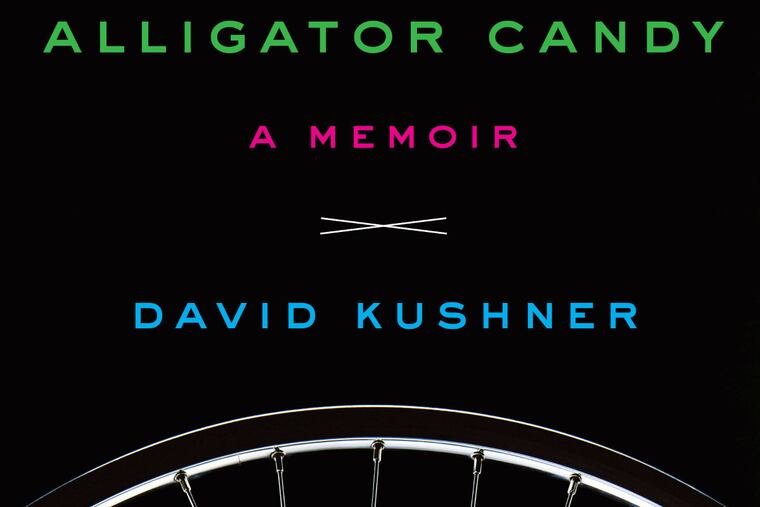'Alligator Candy': Memoir of a family after a child's murder
Alligator Candy is a memoir of what happened to the Kushner family of Tampa, Fla., when 11-year-old Jon rode his bike through the woods to the candy store and never returned.

Alligator Candy
By David Kushner
Simon & Schuster. 256 pp. $26.
nolead ends nolead begins
Reviewed by Claudia Rowe
nolead ends Alligator Candy is a memoir of what happened to the Kushner family of Tampa, Fla., when 11-year-old Jon rode his bike through the woods to the candy store and never returned.
The details are gruesome, but author David Kushner never wallows in them gratuitously. Neither does he shy from explaining exactly what happened as this knowledge unfolded for him - first, through the fuzzy lens of the 4-year-old he was, and then, much later, as an adult returning to testify at a parole hearing against one of his brother's killers.
It is less a crime story than a meditation on the shattering of middle-class innocence and the elusive comforts of memory. The narrator's last sight of his brother is of Jon pedaling off to buy young David's favorite treat, Snappy Gator candy, which is later pulled from the dead boy's pocket and eaten by the killer's wife.
"It felt like being cast in a Grimm's fairy tale made real," Kushner writes. "A boy went into the woods where he met monsters and never returned."
For years, he is convinced this final memory is an invention. But learning the truth as an adult brings no relief. "The more I knew, the worse I felt," he writes. "I didn't want to know anymore."
Kushner takes pains to point out that his parents cannot be faulted. Suburbia's promise in 1973 was exactly the sort of blithe freedom that allowed children to ride their bikes to the candy store without worry. "They weren't being negligent or careless," he writes. "They shared our innocence. They hadn't learned to be afraid."
Kushner grew up to be a journalist and contributing editor at Rolling Stone magazine, and he weaves an excruciating wistfulness into his book, an awareness of himself as part of "the last free generation of kids" who, as adults, let fear quash their own children's freedom.
That realization - the divide between those who glide through the world believing it is a basically benign place, and those who step more warily, knowing that it is not - forms the bedrock of Alligator Candy. When Kushner was 4, he slid from one side of this line to the other.
The Kushners became a family "cast out of orbit, each of us drifting into our own time and space, occasionally feeling the gravity of one another's pull." That distance never quite heals. Even as an adult, the narrator observes how "truly separate each of us was in our grief."
Not a particularly stylish writer, Kushner is sometimes prone to cliché. But he also understands the importance of writing with restraint when the action is anything but.
This review originally appeared in the Seattle Times.